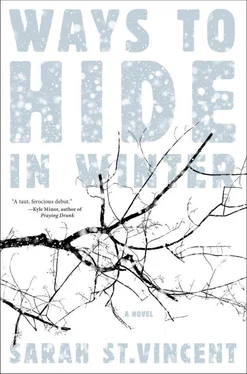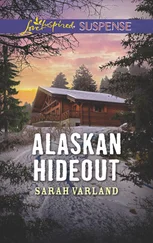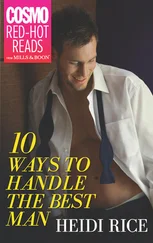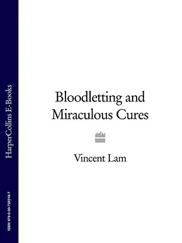“Done. I have cousins. That’s what they’re for. Next?”
“And…and tell Herman I’ll pay him back.”
“Pay him back?”
“Yeah.”
He seemed to consider this, but put his questions aside. “Okay. Anything else?”
I closed my eyes. “Nothing. That’s all.”
“Listen,” he said. “Go ahead. Go.” There was an effort in his voice, as if he were forcing himself to say the words. “This place will still be here when you get back.”
“I don’t think I’m coming back.”
“I see.” He looked down at the streaks of black on the floor, then back up. “Well, if that’s how it’s meant to be, then that’s how it’s meant to be.”
We walked back down the stairs together, and for the second time in twenty-four hours, I found myself facing someone and not knowing what to say.
“Goodbye, then,” he told me, reaching out to shake my hand, pressing mine in both of his. “You—you take care out there. And you know, the minute you need—”
“Yes,” I said. “I know.”
We held each other’s gaze, our hands clasped.
“Go on, then,” he said, his voice strained.
I went, not turning around, realizing that if I looked back at him, I would never go.
Outside, I noticed that one of the store’s windows was open, yawning darkly like a toothless mouth. For a moment, I looked at it, feeling the cool air on my skin. Then I strode out of the parking lot and up the hill, leaving the car behind. In the shade that lined the sides of the road, I walked toward the sun, shielding my eyes. A pickup swept by me, its driver raising a hand in greeting. I turned my head, pretending I hadn’t seen.
Fifteen minutes later, I turned onto the dirt path that led to the prison camp, not caring about the mud that soaked my shoes. I stood there at the entrance, gazing into the forest, taking from it the last peace it would ever give me, picturing the grasses and streams that would come with the summer, slowly covering the ruins as if to shield them, to keep them hidden from those who would seek to map them, to find meaning in what they once were. The fire hadn’t touched this place. The only thing that could undo it, it seemed, was time, the time that would either continue to pull it open to the view of others like a wound or, someday, let it close and disappear and be forgotten.
By the time I returned to the parking lot, the sun was beginning to descend. A bird sang somewhere in the woods, and for the first time in months, I saw a column of smoke rising from the campground. I drove away, slowing only when I passed St. Eleanor Regina, the chapel named after a dead queen whose heart had been removed and buried miles away from her body. I knew how she felt, I thought, picturing the silent woman stretched out, her hands folded over the void in her chest, her eyes closed. I knew how she felt.
—
In town, I was careful, as I always was. I stopped at all the red lights, accelerated slowly on green, kept an eye out for pedestrians. Passing the two strip malls and the Joyride bar—its parking lot so full that two cars were waiting for spaces, their headlights glowing—I got onto the interstate.
At Harrisburg, I merged onto another highway, taking it north, past Hershey. The medical center where I had been treated after the accident was visible from the road, and as I watched, a helicopter landed on the flat roof of one of the buildings, illuminated by floodlights. Moments later, it was gone, hidden by the trees on the side of the road.
Keeping my eyes fixed ahead, I passed it and left it behind.
The truth about the accident, of course, was that it hadn’t been an accident; furthermore, as far as I knew, I hadn’t been hurt at all in the wreck. I was the only one who knew that, and I had never told anyone, even though it would have been easy enough for someone to figure out. I had always expected to be asked about it, but I never was. Everyone was too frightened, I guessed; there was probably plenty that was frightening about me in those early days, bolted and sewn back together and drugged the way that I was. Even so, I always wondered why it was that everyone seemed happy to take the story I told them at face value, and that no one—not a single person—ever asked how it was possible that someone who had been sitting in the passenger’s seat of a car had wound up with so very many injuries on her left side.
Memory is a funny thing. People, as I learned from the handful of psychology books I later found at the library, can be tortured and not remember, kidnapped and not remember, attacked on the street and not remember. Some do remember, but only peripheral things, like the shirt they were wearing or the face on the billboard across the street, the song that was playing on the radio, the color of the sky, the stains on the walls, the sound of some other terrible thing that was happening to someone else nearby. I remembered everything about that afternoon, though, maybe because it wasn’t really such a surprise.
It was a Monday in March. Amos had been laid off a few days earlier after spending the long, cheerless winter working on a building site in Carlisle. Ever since the garage incident, I’d been locked in the house, unable to open the windows or doors. That day, however, he had decided to take me with him while he went fishing up at Possum Lake, on North Mountain, across the valley from the park where I would later work.
I would never know why he brought me along; it was a drizzly day, and maybe he thought he would be lonely, out at the end of the long wooden pier. I sat next to him on a plastic lawn chair, shivering. He had stopped bringing food to the house, eating on his way to and from work instead, with the result that he was increasingly puffy while I was becoming slighter with each passing week. I was determined to leave again, stowing my few possessions away in a corner of the attic, waiting for another chance, a better one, telling myself I would get it right this time, I would run to a place where he’d never find me. I knew it was little more than a fantasy, but I fought hard to hang onto it, clinging to it on bad days, struggling to remember it on what seemed to be good days, willing myself not to let go, not to forget.
I wasn’t as brave as my grandmother had been; or rather, if I was, it was in a different way. When he did the things he did, I didn’t shout or fight back, and after the day when I had fled so uselessly to the priest, I didn’t run. Instead, the war I fought was based on a single tactic: patience. I waited. I waited for him to make a mistake.
For a long time, I was hopeful, but I discovered that hope is hard to maintain when you’re hungry. Hunger trumps everything; there are no other thoughts, no other real desires or fears. Increasingly, I spent my days wandering around the house in the quiet, searching for something that would keep me from thinking about food, wishing for the radios Amos had taken away, wondering if I would actually go crazy from the silence. Often, I simply slept, since sleep was a place where I couldn’t feel the clamoring emptiness in my gut. But all the time, I was waiting. Ready.
That day, on the edge of the dock, with no one else around to see us, I stood up tentatively to stretch, then sat back down when Amos yanked on my arm. He was tense; I could see that. He kept recasting his line for no reason, his face an almost eerie blank as he stared out at the gray water.
It was the loss of his job, I thought. It would pass.
For a while, I, too, stared out at the water. The pier stretched out behind us, so long that it felt as if we were on an island by ourselves. Amos clapped a hand to his neck, swatting a mosquito, then was still again. There was no wind, and the long grasses and cattails seemed to stand sentry, guarding the hostile and impenetrable marshes.
Читать дальше












